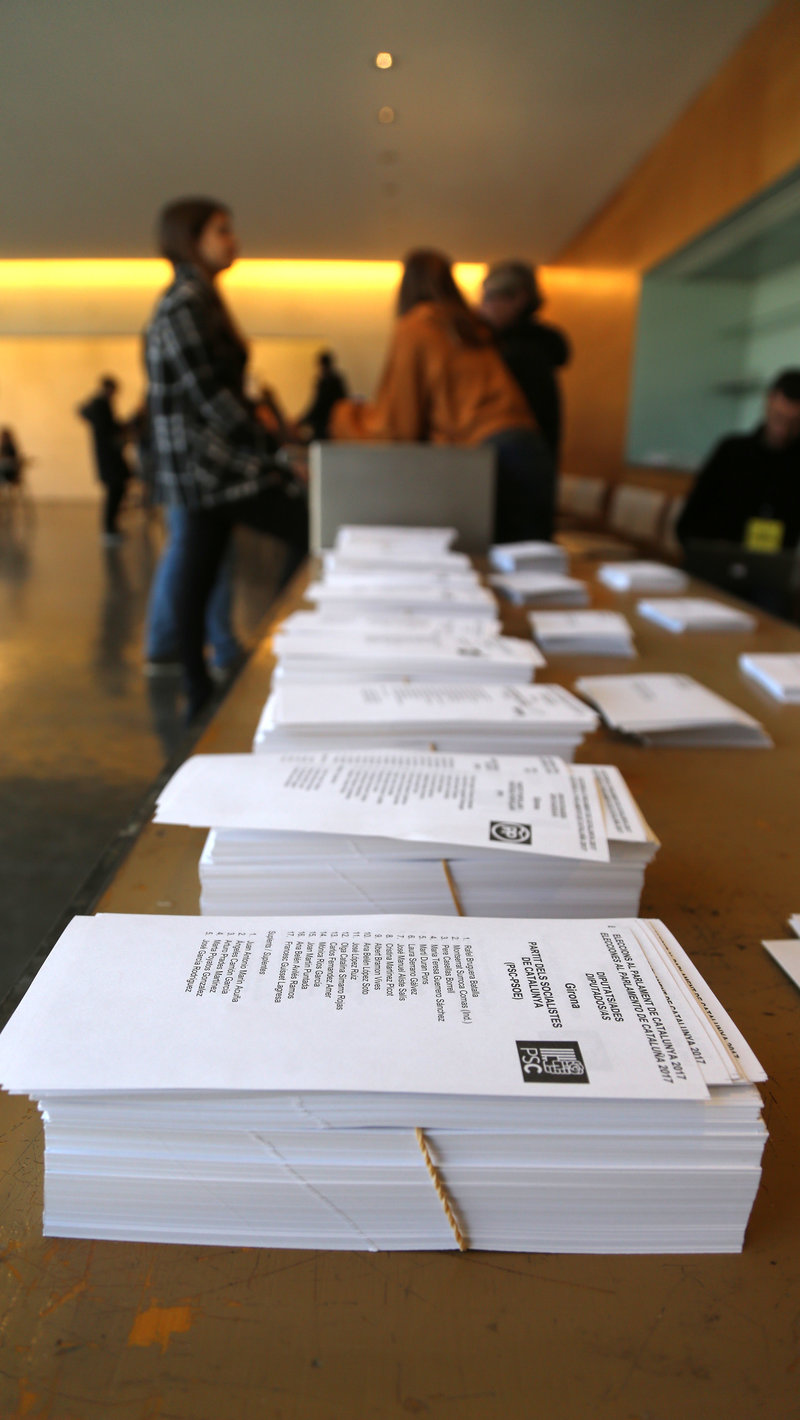Unionist fraud in 2017 vote?
The contest between Catalan and Spanish institutions has been unequal, as any observer may grasp. Not without a certain amount of cynicism, some argue that any central state is entitled to use all means available to rule over its territory. In fact, self-described democrats have justified every move used by Spain against Catalonia. It seems it did not matter that by using brute police force to deny the right of people to vote, Madrid showed a ruthless authoritarian commitment to crush the Catalans.
Indeed, a turbulent period followed the referendum, in which the main Catalan institutions where suppressed across the board, from parliament to government. Regional elections were called straight away, in a move that was, plausibly, forced by Brussels. Indeed, such was the rush that they were held not on the traditional Sunday, but on a working day – Thursday 21 being the only date available before Christmas.
The new polls where meant to settle the dispute by showing whether Catalan citizens accepted Madrid’s iron rule, or if the tug-of-war between both sides should continue. In due accordance with to its relevance, the turnout was the highest ever in Spain, with up to 80% of the electorate participating. The surprising new victory of the pro-independence side was a huge setback for the whole of unionism, including Madrid, which noticeably played the Ciudadanos card, the party of Spanish nationalism in Catalonia. It was meant to show the world that, first and foremost, Catalans desired a restoration of the “constitutional order”, no matter what, to draw back from the supposed chaos caused by the independence process.
With no room for naivety, Madrid has shown its will to cross any democratic red line in order to stop Catalan self-determination. That has included passing a decree just days after the referendum, by means of which companies could fast-track the moving of their head offices. Following this, in the midst of the heavy political turmoil – including direct pressure from the king himself – some relevant firms did indeed move their headquarters outside Catalonia. Nonetheless, the economic Armageddon as announced by the unionist side – including its majority servile media – did not happen. Even the Financial Times has recently reported that, on the contrary, Catalonia has displayed uninterrupted superior economic performance to Spain as a whole.
Given the high stakes in those particular elections, in the background there was the issue of whether the state, through the many different means available to it, would resort to direct electoral fraud. After all, Madrid has not been shy in using, for example, fake anonymous reports (fabricated by the secret police) to discredit pro-independence leaders while on the campaign trail. A recent study by Catalan economist David Ros shows that the level of fraud was undeniably sufficient to alter the results. If not extreme, the fraud was significant, enough to stop the pro-independence side attaining (or slightly surpassing) 50% of the electorate.
Mr Ros highlights some striking anomalies within the electoral process, such as the electoral committee being only composed of members of pro-unionist parties.
Regarding the voting process itself, Ros pinpoints three main areas of actual fraud: postal votes, outbound residents votes and spot voting. After a documented analysis, Mr Ros has detected a bias towards Ciudadanos of up to six extra MPs, with at least four of them taken from pro-independence parties. In relative terms, that translates to the pro-independence side attaining almost 50% of the ballots, and the unionists just below 42% (the remaining almost 8% goes to parties with an undefined position on Catalonia’s independence). Considering the three key upcoming elections, the factors noted above are worth taking into account, chiefly if the state is again keen to play dirty tricks to thwart a fair electoral processes.

